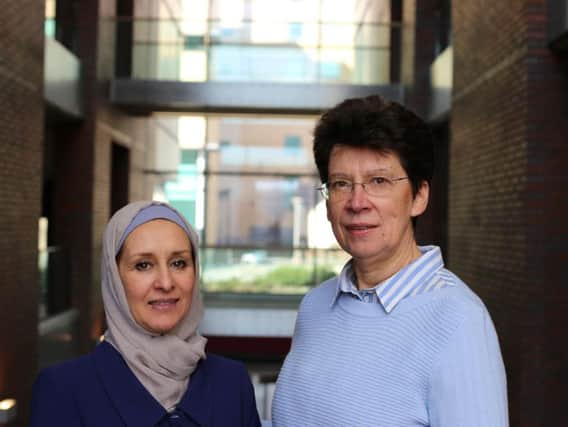Sheffield Hallam hosts world health experts to guide response to female genital mutilation


Sheffield Hallam University is hosting 39 representatives from 14 countries to discuss a recently-published World Health Organisation document designed to help Governments and communities tackle the issue.
The event will cover cultural attitudes to the practice, how best to educate people and how to guide healthcare providers across Europe and the wider world.
Advertisement
Hide AdAdvertisement
Hide AdDr Gunta Lazdane, programme manager for sexual and reproductive health in the WHO's regional office for Europe, said there had been a lot of progress on female genital mutilation, of FGM, over the past decade - but there was much more work to be done.
"It is obvious that all over the world people are not familiar with the issue," she said.
"When girls and women come to health services, not all know how to help them."
The WHO sets out four degrees of FGM, but is clear that all can cause serious problems, particularly during pregnancy and birth.
Advertisement
Hide AdAdvertisement
Hide AdEvidence shows the practice is not related to a particular religion or country, but is usually an ingrained tradition within a specific ethnic group.
Increased movement of people, according to Dr Lazdane, has spread the practice across the world, and in the UK one in every 200 women are at risk.
Raising awareness of the problems tied to FGM is therefore a key priority of this week's conference.
Hora Soltani, professor of maternal and infant health at Hallam's Centre for Health and Social Care Research, said: "Women with a poor level of education some to be more affected.
"And generally, knowledge is power.
"That's why we are so happy to be hosting this event.
Advertisement
Hide AdAdvertisement
Hide Ad"The evidence is really powerful. If people really see the evidence of harm and know how it affects girls' futures through pregnancy and birth, it must have an effect in reducing the risk."
The conference is taking place at the university's Charles Street building on Thursday on Friday, with several of the university's academics involved.
The WHO hopes to host future events in Sheffield.